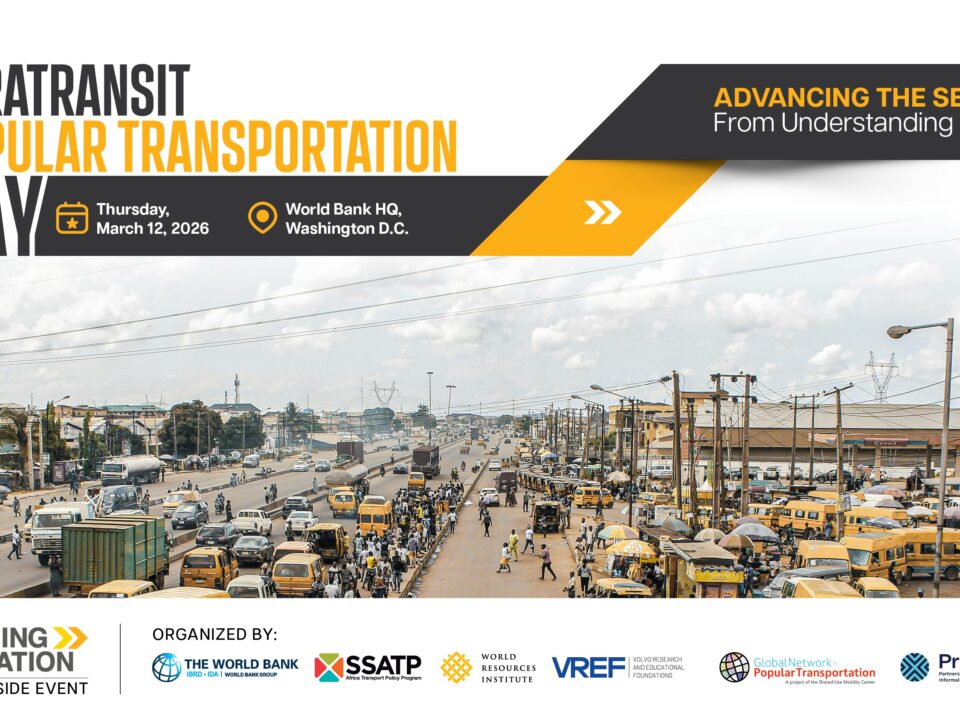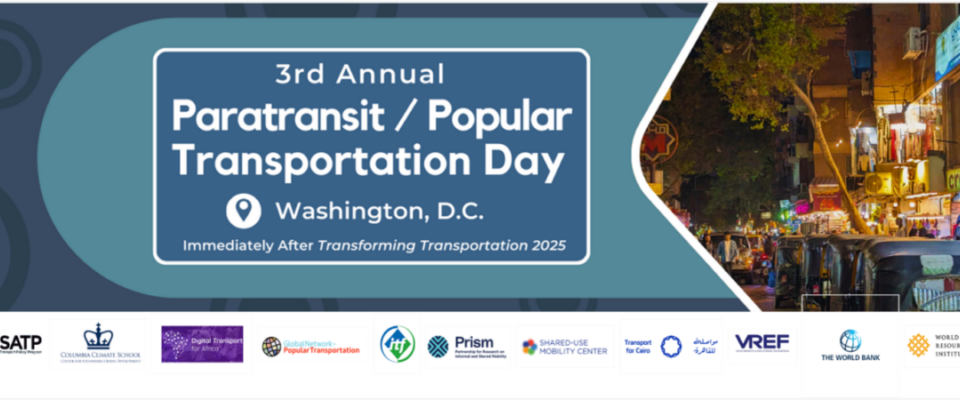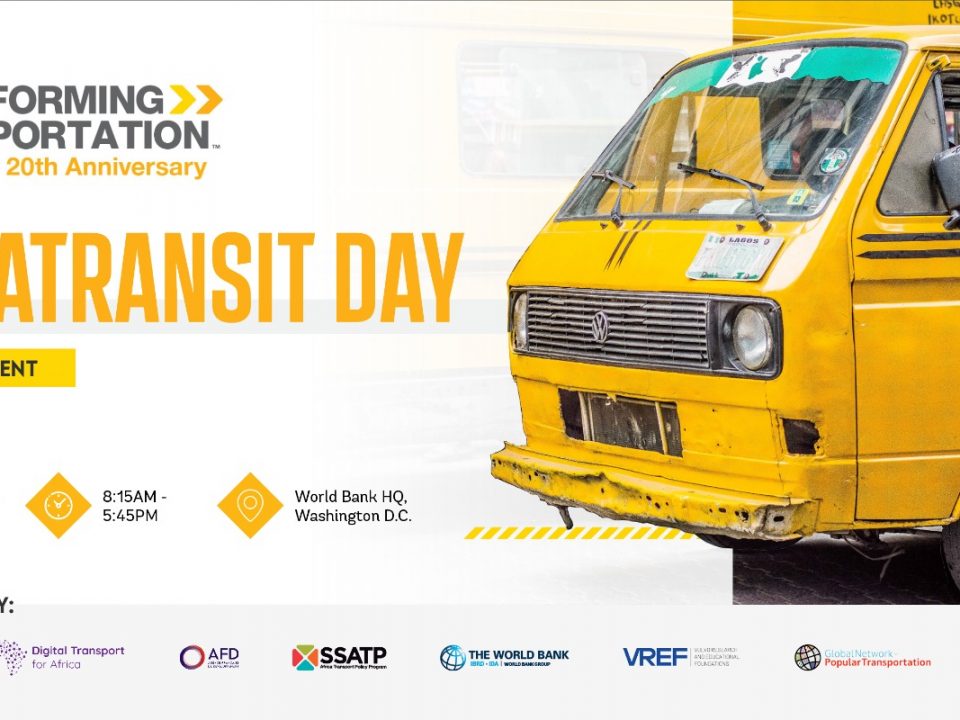
The DT4A Innovation Challenge: Achievements and Next Steps
4 March 2022
WatriFeed: The Open Source Collaborative GTFS Data Editor
17 May 2022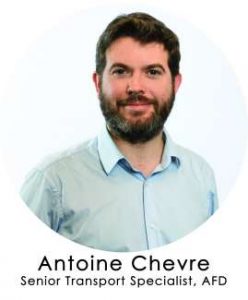
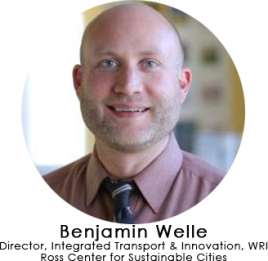
Ben’s work includes leading global research and projects, particularly in the areas of public transport, minibus services, mobility planning, access to opportunities, new mobility and innovation, traffic safety, walking & cycling, and public space. Prior to this role, Ben was Senior Associate for Urban Mobility at WRI Ross Center for Sustainable Cities, working on many of the same issues. Prior to working at WRI, he was assistant director of the Center for City Park Excellence at the Trust for Public Land in Washington, D.C., researching and consulting on city parks, public space, green infrastructure, transport planning, and related economic impact.

Principal Skills & Knowledge
• Geospatial Information Systems; Designing, creating and maintaining geographic information systems for the use in analysis and decision making. Implementation of solid data pipelines to ensure quality and improve efficiency of data extraction, loading, and transformation.
• Training and capacity building; Conducting training sessions to different stakeholders such as government, universities and professionals to develop technical knowledge and skills related to transportation. Includes preparation of material and tutorials as well as planning logistics and promotion.
Countries of work experience
Egypt, Uganda, Ethiopia, Djibouti, Ghana
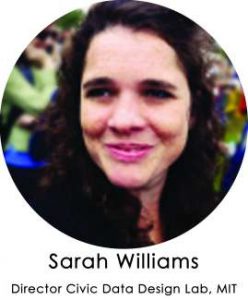
Williams is an Associate Professor of Technology and Urban Planning at the Massachusetts Institute of Technology (MIT) where she is also Director of the Civic Data Design Lab and the Leventhal Center for Advanced Urbanism. Williams’ combines her training in computation and design to create communication strategies that expose urban policy issues to broad audiences and create civic change. She calls the process Data Action, which is also the name of her recent book published by MIT Press. Williams is co-founder and developer of Envelope.city, a web-based software product that visualizes and allows users to modify zoning in New York City. Before coming to MIT, Williams was Co-Director of the Spatial Information Design Lab at Columbia University’s Graduate School of Architecture Planning and Preservation (GSAPP). Her design work has been widely exhibited including work in the Guggenheim, the Museum of Modern Art (MoMA), Venice Biennale, and the Cooper Hewitt Museum. Williams has won numerous awards including being named one of the top 25 technology planners and Game Changer by Metropolis Magazine. Check out her latest exhibition, Visualizing NYC 2021, at the Center for Architecture in New York City.

- Expert in Urban Mobility in Africa
- Expertise in Land Management and Emerging countries’ development dynamics
- Expertise in African startups incubation
« The major challenge of transport and mobility in African cities is to reconcile the Urbanism – Transport couple and build human-centered cities by adopting an inclusive approach at different national, regional and continental scales. African countries must focus on their mobility and transport needs and define priorities to support and promote local innovation and resources. Creating bridges and synergies, telling stories and sharing experiences between countries, is surely the best way to face today’s and tomorrow’s challenges, and to fight against climate change in order to make African cities real catalysts for the continent’s development.»
His project experiences include project director, traffic engineer, transport engineer, and safety engineer positions in a number of projects involving traffic data collection and analysis, design of urban traffic control systems, urban traffic management, parking systems development, freight transport and logistics, public transport demand, road network planning, feasibility studies of transport infrastructure, and transport-related emissions and air pollution. Project clients include government agencies at city level including Addis Ababa Transport Bureau, Transport Programs Management Office, Traffic Management Agency, and federal agencies including Ministry of Transport, Office of the Road Fund, Federal Transport Authority, Ethiopian Roads Authority, and Ethiopian Airports Enterprise, as well as international institutions such as the World Food Programme.
Dr. Bikila has developed and delivered a number of short-term training courses in the areas of public transport operations, traffic engineering, traffic management, and road traffic safety to professionals from Addis Ababa City Transport Authority, Traffic Police, and public transport operators.
Dr. Bikila also has ten years of experience in leadership and capacity building positions within the Addis Ababa Institute of Technology (AAiT), including his services as dean of the School of Civil and Environmental Engineering, chairperson of the Road and Transport Engineering Chair, director of the Ethiopian Centre of Excellence in Freight Transport and Logistics, co-founder and head of the Railway Engineering Centre, and graduate program coordinator. In addition, he has served in leadership positions in professional associations and serves as board member and technical adviser in different public institutions in the transport sector of Ethiopia.
Dr. Bikila teaches several transport-related graduate courses (transport planning, railway transport planning and operations management, traffic engineering, traffic safety and environmental impacts). He has advised over 40 MSc researches in his areas of expertise in Ethiopia and abroad, and has a number of publications and presentations in international journals and conferences.



